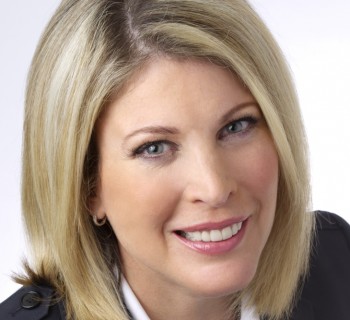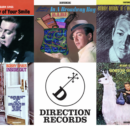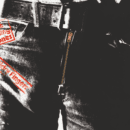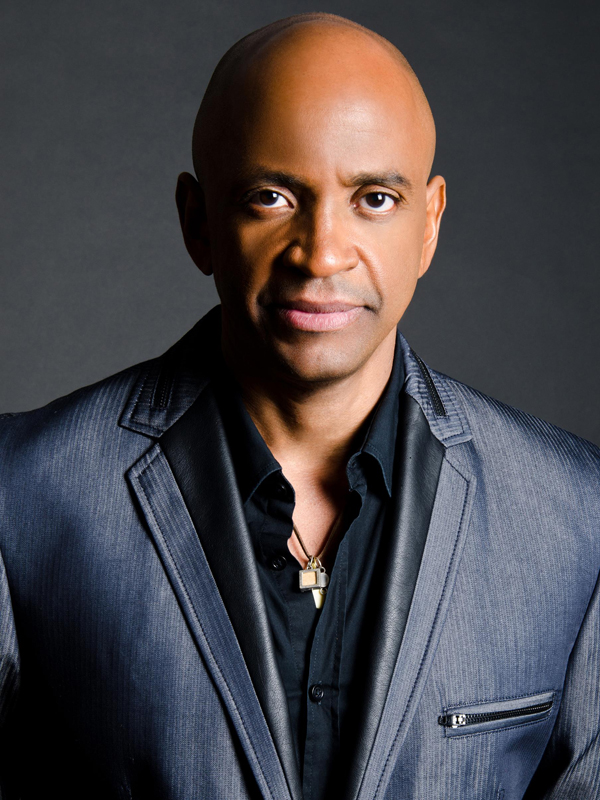 Salsa producer and multi-Grammy winner Sergio George stepped into production nearly by accident. With a degree in orchestration and some training in engineering, he landed various jobs. The pivotal one for him was as an arranger on a session with Tito Nieves. The producer quit mid-session and George was asked to assume the role, thereby earning him his first hit: “Sonámbulo.” He’s since worked with various stars of salsa including Marc Anthony, Christina Aguilera and Tito Nieves. Indeed, he produced Celia Cruz’s final album before her death. He’s received two Latin Grammys for Producer of the Year and is the founder and CEO of salsa label Top Stop Music.
Salsa producer and multi-Grammy winner Sergio George stepped into production nearly by accident. With a degree in orchestration and some training in engineering, he landed various jobs. The pivotal one for him was as an arranger on a session with Tito Nieves. The producer quit mid-session and George was asked to assume the role, thereby earning him his first hit: “Sonámbulo.” He’s since worked with various stars of salsa including Marc Anthony, Christina Aguilera and Tito Nieves. Indeed, he produced Celia Cruz’s final album before her death. He’s received two Latin Grammys for Producer of the Year and is the founder and CEO of salsa label Top Stop Music.
When George begins work with an artist, he ensures that he’s familiar with their work and finds where they can fit into the prevailing climate. “I have to be into the project or know about the person’s background,” George explains. “But I’ve already done that homework before I agree to do a project. Then I combine who that artist is with what I think the marketplace will accept. Then the song selection starts. Before you even get in the studio, you have to have a plan.”
George had been in the production game for 15 years before he earned his first nomination for Producer of the Year. “Salsa wasn’t seen as a producer-driven genre,” he observes. “So I attribute my success to staying in the game. Over time, everything catches up and goes your way. God rewards you if you just don’t quit.”
His decision to launch Top Stop came about after pouring effort into a project and seeing it fail to make it into record stores or onto radio. “I wanted some control over the direction of the records,” he says. “I’m not talking about just the production but I have to be able to market and promote records properly. Otherwise you put a lot of heart and soul into a project and somebody else doesn’t care about it and won’t put any money or energy behind it. With Top Stop, I can control everything.
“The biggest challenge about running a label is getting an artist recognized,” he continues. “It’s easier [than in the past because you have the Internet] but so does everybody else. It’s tougher to get recognized. You have to have a plan before you come out with an artist and you have to attack so many sources. That has to be done before you even decide to record an artist. It’s got to be somebody with something solid to offer.”
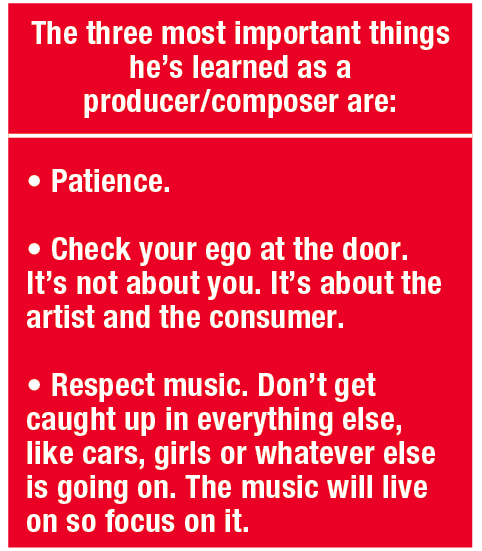 One of the biggest production challenges George has ever faced was when he traveled to Tokyo in 1988 to produce and engineer Japanese salsa band Orquesta de la Luz. “I didn’t speak Japanese and they didn’t speak English or Spanish,” he recalls. “The entire record had to be done with an interpreter. That was difficult but it taught me that music is universal.” Things went well and he was invited back several times.
One of the biggest production challenges George has ever faced was when he traveled to Tokyo in 1988 to produce and engineer Japanese salsa band Orquesta de la Luz. “I didn’t speak Japanese and they didn’t speak English or Spanish,” he recalls. “The entire record had to be done with an interpreter. That was difficult but it taught me that music is universal.” Things went well and he was invited back several times.
Another, more personal and poignant challenge was the work he did on Celia Cruz’s final album. “She was dying of a brain tumor and had breast cancer,” the producer recalls. “We went into it knowing that she was going to die. I’d known her for 25 years at that point but I had to rush and do my job before time ran out. That was an amazing experience of someone’s willpower and desire to leave a legacy. It taught me patience and compassion.”
Contact Nick Carcaterra/Susan Blond, Inc., [email protected]; [email protected]




